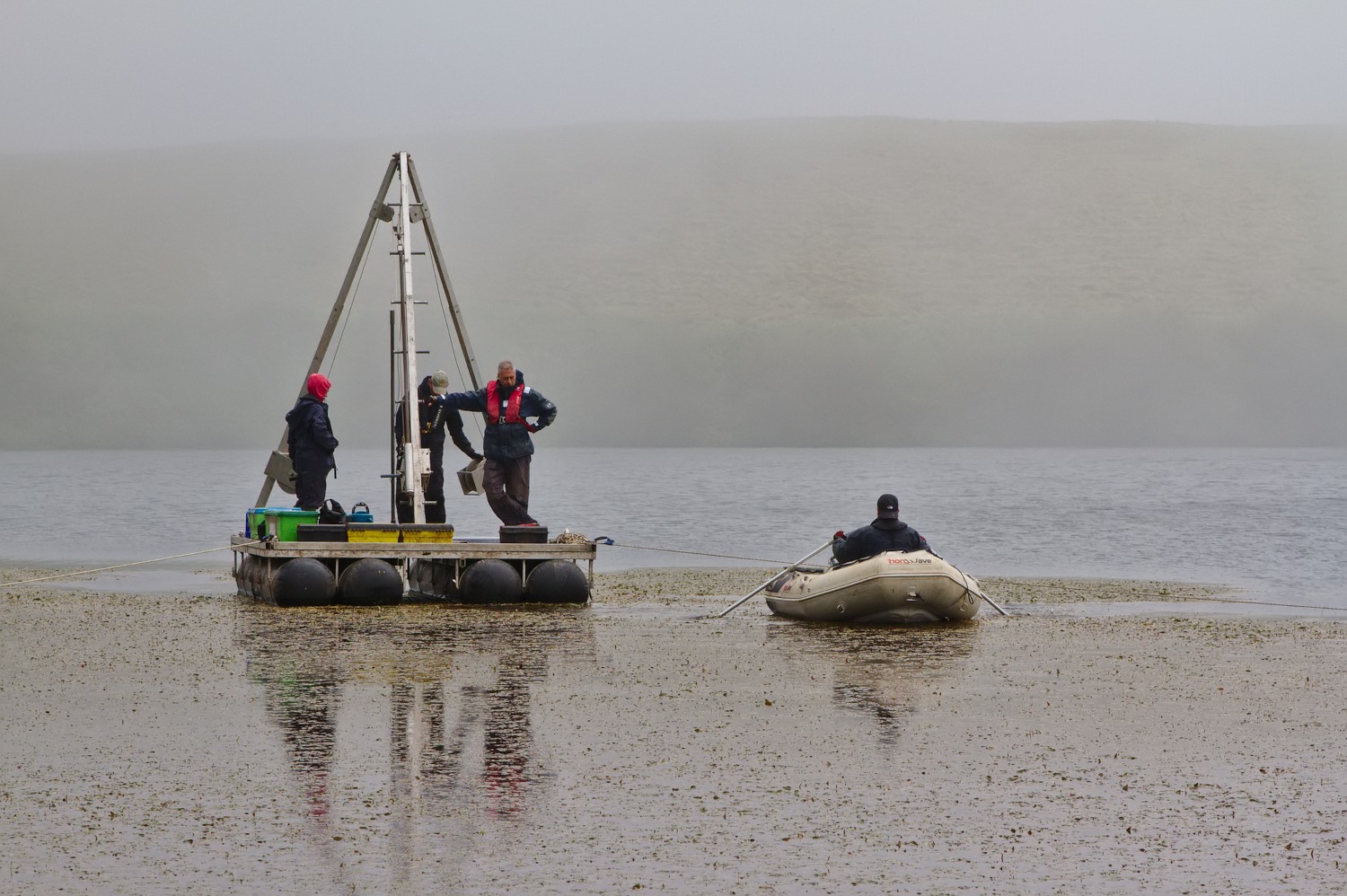16 de October de 2024
The rise in temperature caused by climate change is endangering the lake ecosystems of the Azores archipelago. These lakes, which serve as water reserves for the population, contribute to water regulation, tourism and leisure activities, and are essential for preserving the biodiversity of the islands. They are losing part of their biodiversity and their capacity to provide these ecosystem services.
This is confirmed by a new study conducted on the island of São Miguel, where researchers found that the number of diatom species, unicellular algae that form the base of the food chain, has decreased by 27% in all the island’s lakes. This phenomenon began in 1982, when the temperature in the Northern Hemisphere rose by 0.35ºC compared to the 20th century average.
“With the data we’ve gathered from various field campaigns in the Azores, we’ve been able to observe an ecological state shift, a sudden change where the lakes transition from one diatom community to another, with no possibility of returning to the previous state,” explains Santiago Giralt, researcher at Geosciences Barcelona (GEO3BCN-CSIC) and co-author of the publication.
There are around 20,000 known species of diatoms, and they are used as indicators to understand the environmental conditions of an ecosystem, as well as to study the climatic changes that have occurred throughout Earth’s history. “Changes in these algae communities in the Azores have been noticeable since humans began to expand across the archipelago. This study shows that in 1982, a threshold was crossed, a point of no return, which has homogenized the lakes regionally, resulting in a reduction of their ecosystem services,” explains Sergi Pla-Rabés, researcher at the Autonomous University of Barcelona and CREAF, and first author of the article.
For Miguel Matías, researcher at the National Museum of Natural Sciences, “the most alarming aspect of this data is not the almost 30% reduction in diatom species in one lake, but the fact that this decrease has occurred at a regional scale across the whole island, indicating a homogenization process.”
In this context, and according to the research, it is likely that the changes detected in the archipelago’s lakes are also occurring in other lake ecosystems around the world. “Our hypothesis is that this homogenization, which we’ve documented on São Miguel island, is happening in lake ecosystems on other islands and possibly in isolated lake regions in the Northern Hemisphere and beyond,” points out Sergi Pla-Rabés.
According to the research published in Nature Communications Earth & Environment, a combination of human-induced disturbances has resulted in the development of smaller-sized phytoplankton and cyanobacteria, which often accumulate on the surface, preventing sunlight from reaching the deeper parts of the water body. “With less available light, the habitat for benthic diatoms shrinks, reducing the number of species and simplifying the ecosystem,” comments Vítor Gonçalves from the University of the Azores.
Next goal: restoring ecosystems
Given this data, it is crucial to increase ecological restoration efforts to enhance environmental diversity across the island. “The degradation of ecosystems cannot be fully reversed; we cannot aspire to return to the past environmental conditions as if there were no human populations on the islands,” warns Pedro Raposeiro, researcher at the University of the Azores.
The team’s proposal to increase the complexity of ecosystems, thereby ensuring the preservation of essential ecosystem services for the island’s population, is to reduce the local pressures we can control. “We believe it is necessary to focus efforts on specific areas of the island to keep livestock farming and infrastructure away from the lake basins. Ultimately, we need to implement ecological restoration that takes into account the economic and social realities of the island’s inhabitants,” concludes Vítor Gonçalves, researcher at the University of the Azores.
This study was conducted with the collaboration of researchers from the Autonomous University of Barcelona (UAB), CREAF, the National Museum of Natural Sciences (MNCN-CSIC), Geosciences Barcelona (GEO3BCN-CSIC), the CEAB-CSIC Institute, and the Universities of the Azores, Évora, Coruña, and Barcelona.
Article reference
S. Pla-Rabés, M.G. Matias, V. Gonçalves, D. Vázquez Loureiro, H. Marques, R. Bao, T. Buchaca, A. Hernández, S. Giralt, A. Sáez, G.L. Simpson, S. Nogué y P.M. Raposeiro. (2024) Global warming triggers abrupt regime shifts in island lake ecosystems in the Azores Archipelago. Communications earth & environment. DOI: https://doi.org/10.1038/s43247-024-01744-6

